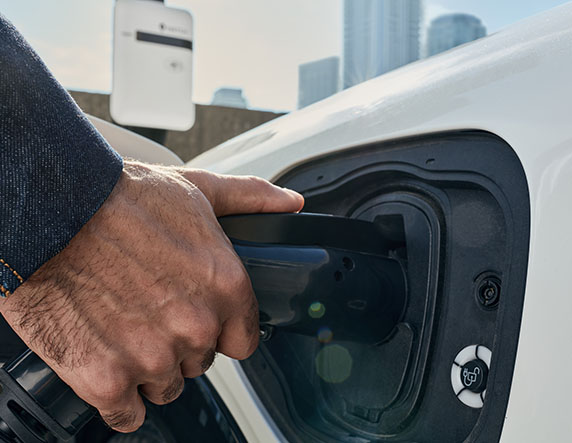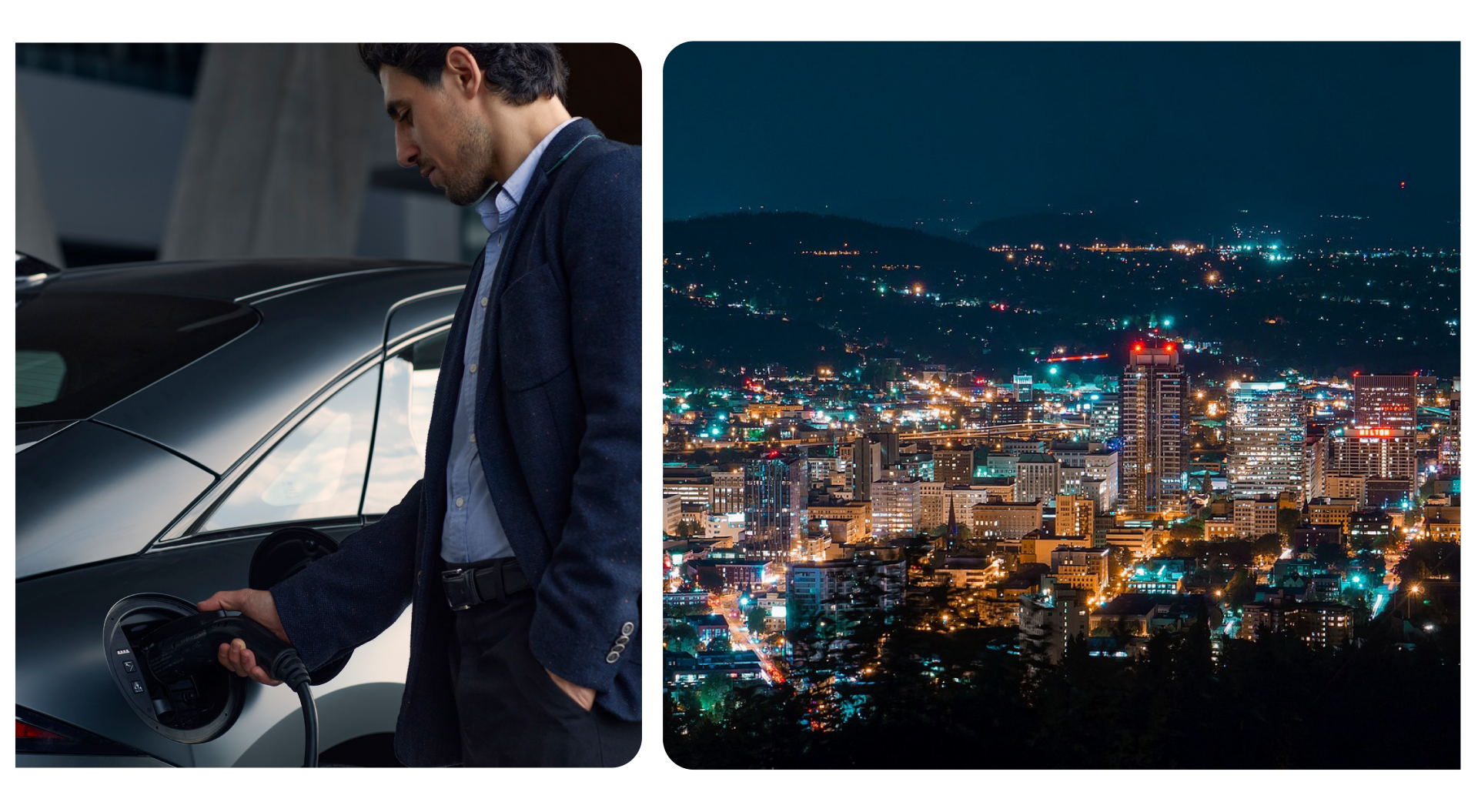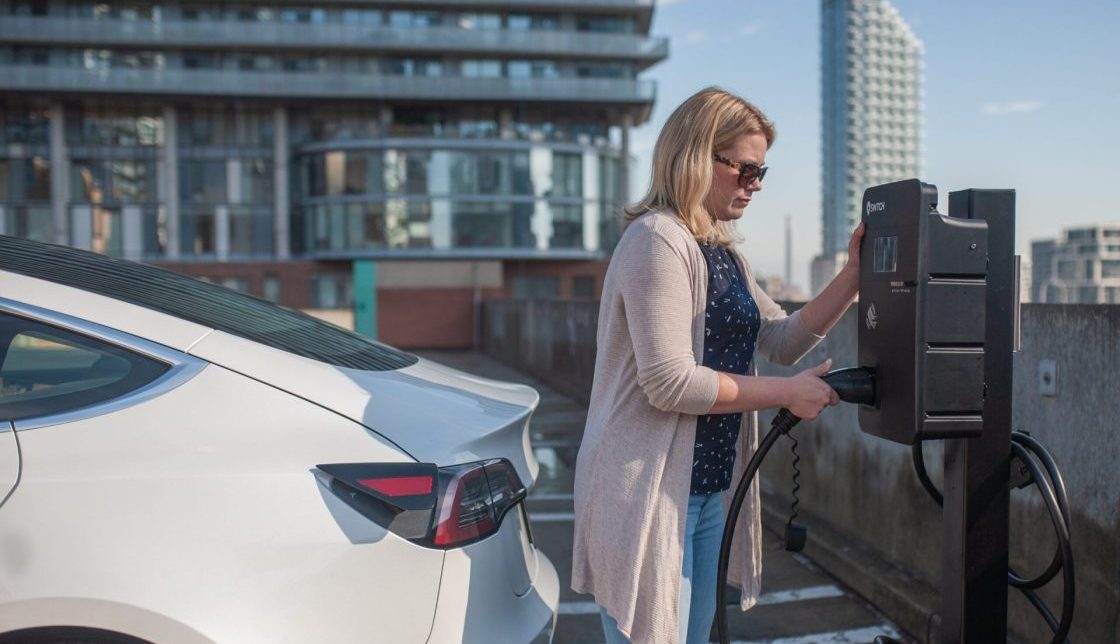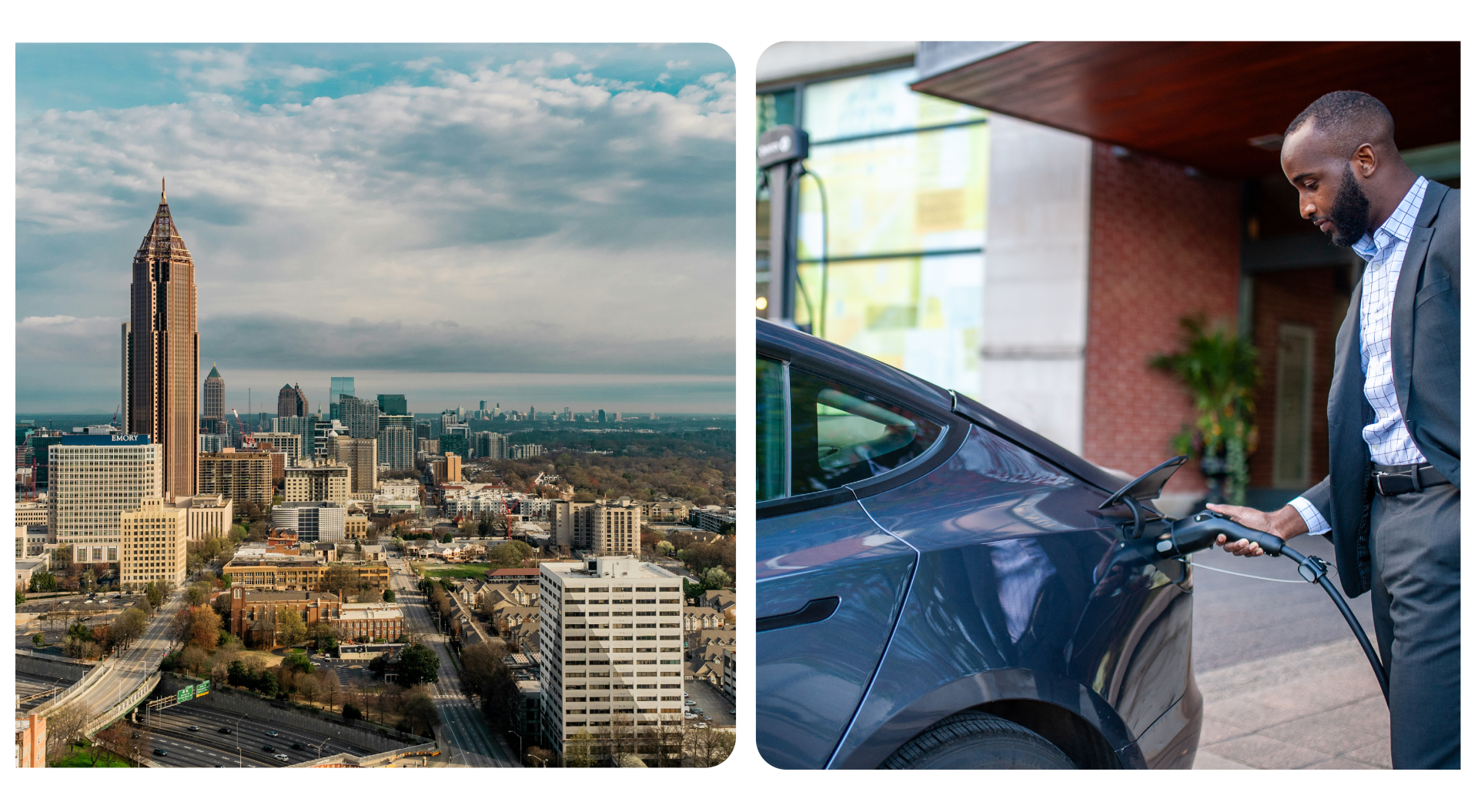Updated: Eligible Illinois Properties Can Get $8K Per Charger Through ComEd’s EV Make-Ready Rebate Program
Last Updated: October 2025
There is a reason more and more business and public entities are looking into electric vehicles (EV) and charging infrastructure. Incentive programs allow businesses the opportunity to significantly reduce operating and maintenance costs, while also reducing greenhouse gas emissions and vehicle noise in the community.
ComEd’s Make-Ready Rebate Program has been updated for 2025, and it continues to offer significant rebates for Illinois businesses and public sector customers looking to electrify their properties. With rebates available for make-ready charging infrastructure, this is an excellent opportunity to invest in a clean energy future.
If you are contemplating installing EV chargers and want to learn how much you could be eligible for, do not waste any time as funds will soon be available but won’t last long.
What is included in the rebate?
Make-ready infrastructure includes the costs required to prepare a site for EV charging on both sides of the ComEd meter. Examples of eligible costs include, but are not limited to:
- Permits
- Electric panel upgrades
- Conduit and wiring
- Site work, trenching, and repair
- Required protective equipment
- Associated labor
- Non-standard facility upgrades
EV chargers (also known as Electric Vehicle Supply Equipment or EVSE), mounting equipment, and pedestals are not eligible for program rebates.
The Program includes rebates for infrastructure serving both Level 2 (L2) chargers and Direct Current Fast Chargers (DCFCs).
For infrastructure serving Level 2 (L2) Chargers:
Yes, SWTCH offers Level 2 Chargers!
- Base Rebate: Up to $5,333 per port (with a 10-port maximum per project).
- LI/EIEC Rebate: Up to $8,000 per port (with a 10-port maximum per project).
For many installations, the average per-charger make-ready installation cost is less than $8,000, meaning that all of the electrical work, panel upgrades, and labor to install the chargers could be fully covered for eligible customers.
For infrastructure serving Direct Current Fast Chargers (DCFCs or Level 3 Chargers):
Yes, SWTCH offers DCFC or Level 3 Chargers!
- Base Rebate: Up to $667 per kW, with a minimum of 50 kW per charger (maximum rebate of $500,000 per project).
- LI/EIEC Rebate: Up to $1,000 per kW, with a minimum of 50 kW per charger (maximum rebate of $500,000 per project).
There is an annual cap of $1,000,000 per premises. A premises is defined as the street address where the EV infrastructure project is installed.
Who is eligible for the higher LI/EIEC Rebate?
To qualify for the highest rebates, customers must be eligible for the LI/EIEC Rebate. A customer only needs to satisfy one of the following requirements:
- The customer is located in a low-income community and/or primarily serves a low-income community.
- The customer is located in an Environmental Justice (EJ) community or a Restore, Reinvest, Renew (R3) community (collectively referred to as an Equity Investment Eligible Community or “EIEC”) and/or predominantly serves an EIEC.
- The customer demonstrates through attestation that over 50% of the driving by the business fleet vehicles using the make-ready infrastructure serves low-income communities or EIECs.
- Public transportation authorities (including the Chicago Transit Authority) seeking rebates for make-ready infrastructure projects.
Eligible customers are those who:
-
- Live in a low-income community and/or primarily serve in a low-income community.
*Refers to where the vehicles are permanently assigned, most frequently used, or dispatched from. - Live in an Environmental Justice (“EJ”) community or a Restore, Reinvest, Renew (“R3”) community, collectively referred to as an Equity Investment Eligible Community (“EIEC”), and/or predominantly service in an EIEC.
- Demonstrates through attestation that over 50% of the driving done by the vehicle at issue is in a low-income community or EIECs.
- Are from the Chicago Transit Authority and seeking rebates for transit buses.
- Live in a low-income community and/or primarily serve in a low-income community.
What are the requirements?
- Installer Certification: You must use a contractor that has an active Electric Vehicle Charging Station Installer Certification from the Illinois Commerce Commission (ICC) to install your project’s EV chargers to qualify for a program rebate. A project will not qualify if the installer is not ICC certified.
- Equipment: All L2 chargers installed through the program must be ENERGY STAR® certified.
- Project Documentation: You will need to provide project documentation, including dated invoices for the purchase and installation, and product specification sheets.
Additional Requirements for Public EV Chargers:
If your project is for public EV chargers (chargers intended for public use), the following requirements apply:
- Chargers must have CCS/J1772 plugs.
- Equipment must maintain a minimum of 97% uptime reliability.
- Chargers must meet specific communication protocols, including ISO 15118 and Open Charge Point Protocol (“OCPP”) 2.0.1.
- Projects must include at least two (2) ports per site.
- You must provide an attestation that you have performed public outreach in the development of your proposed project.
- You will be required to submit annual reliability reports to ComEd.
When and how should I apply?
Applications must be submitted within 90 calendar days of project completion.
Backdating for LI/EIEC Projects:
Backdating is permitted for LI/EIEC projects completed between July 15 and December 31, 2025. To be considered, a complete and error-free application must be submitted between January 1 and January 30, 2026.
Rebate Reservations:
If your project is not yet complete, you can submit a rebate reservation request to have project funds reserved for six months or until December 31, 2025, whichever comes first. To be considered for a reservation, you must provide a fully approved site plan and other documentation.
Important Note on Rebate Reservations: No project scope changes will be accepted for already approved rebate reservations. ComEd reserves the right to cancel a reservation if significant scope changes are requested.
The Application Process, Step-by-Step:
- Partner with an ICC-certified electric vehicle installer.
- Design your project. Work with your contractor and your EV charging solutions provider to create a site design.
- Submit a service request to ComEd if your project requires work to upgrade electrical capacity.
- Complete construction and installation.
- Apply for your rebate from ComEd within the 90-day window.
Don’t let this limited-time opportunity pass you by – if you are keen on bringing EV charging to your property and would like to apply for funding, contact SWTCH today!
Work with SWTCH to secure your ComEd rebate
Whether it is an apartment, condominium, affordable or market-rate housing, SWTCH is here to help. Through our turnkey EV charging solution, we’re here every step of the way; from system design, electrical sizing, incentive application support, all the way to installation and 24/7 support for you and your EV drivers.
At SWTCH, we leverage state-of-the-art technology to help building owners and operators deploy optimized multi-vehicle charging systems. SWTCH’s solution utilizes the building’s existing grid infrastructure to deploy a cost-effective charging system that works for your EV drivers today and smoothly scales to support the charging demand in the future.
To learn more about SWTCH, check out our multifamily, workplace, and retail/public EV charging solutions. We can also help you navigate the complexities of incentive applications and ensure your filing meets the high-quality standards of a successful bid.
Get in touch today to learn how you can take advantage of this rebate and opportunity to add EV charging to your property.






